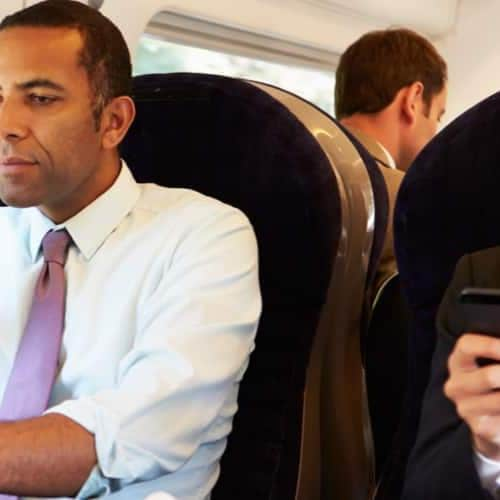Travel and Expense
Save Money on Business Travel with a Travel Expense Policy
With business travel on the rise, companies are looking for ways to keep costs low. When it comes to decreasing employee expenses, low-cost airfare and rideshare programs are only one part of the story. Documenting travel and expense policies can make a huge impact on your bottom line.
How to save money on business travel
First and foremost you need a travel expense policy. The goal of a travel expense policy should be to ease the hassles often associated with business travel. The policy should cover standard expense categories like accommodations, travel, food, and entertainment, with rules about what is or isn’t permitted.
Your travel policy goes beyond expenses
Understanding the role your travel policy plays is the first step toward creating one your employees will follow. How important is a travel policy? In a word: very. And here are two reasons why:
1. Procedure creates security
A travel policy creates guidelines for employee expenditures, such as hotel fees, food, and entertainment. This makes expense reporting, approval, and reimbursement easier for travelers, managers, and finance teams. A streamlined process reduces time spent creating and reviewing expense reports, as well as decreases overall costs for each trip through the use of approved vendors, booking procedures, and standardized per diems. It also eases the stress of business-related purchases for the employees while on the road. A traveler isn’t left wondering if a bottle of water is considered a personal or business expense or if they shouldn’t have treated a prospective client to lunch.
An added bonus: With travel and expense procedures in place, employees are more likely to stay compliant, decreasing opportunities for intentional or unintentional fraud.
2. Recruiting and HR will benefit
When it comes to employee recruitment and retention, a company’s travel policy can a play an important role. A study on the top challenges faced by business travelers conducted by the GBTA Foundation, in partnership with the Sabre corporation, found that “nearly three in five (59%) [of respondents] indicate a company’s travel policy is an important factor when considering a potential new employer. Additionally, the vast majority of travelers (84%) say the quality of their business travel experience impacts their business results at least somewhat.”
Turnover and hiring can be costly for organizations of all sizes, and being able to save money in this area can go a long way to improving your bottom line. Your road warriors deserve a seamless travel experience, especially since they are sometimes away from home and family for long periods of time. A travel policy that is clear, easy to follow, and fair goes a long way to keeping your employees happy while on the road and more engaged in their job.
Establishing a comprehensive travel expense policy
Now that you have a better understanding of what is driving your travel policy, the next step is to actually create one (or update the one you have).
Here are a few tips to get you started:
- Make sure you write in a clear and straightforward manner: No flowery language or legalese is needed.
- Have others review the policy with you: Put the experience of your seasoned travelers to work, and make sure to include members of various teams from your office (think HR, sales, marketing, finance, etc.).
- Ensure that the policy is findable and searchable: Make it as easy as possible for users to reference.
- Communicate the benefits: Protect against employee resistance by making sure employees know you're dedicated to making their travel experience a positive one.
- Leverage data to negotiate deals and discounts: Do your business travelers frequent the same hotels or airlines? Use this intelligence to negotiate better pricing.
- Consult and reference other company documents: Travel expense management is intertwined with other company procedures, so consistency and alignment is key.
- Review international law and global travel restrictions: Ensure overseas travelers have the most up-to-date information to make their long journey a bit less stressful.
- Decide on travel parameters: Develop clear guidelines on acceptable spending limits for standard expenses such as airfare, hotels, and meals.
- Integrate automated expense reporting solutions: Through the use of cloud-based and mobile technology Concur Expense allows employees to submit expenses from their mobile phones.
Not quite sure where to start? Our free travel policy template has all the information and direction you need to create a travel policy your employees will be happy to follow.

